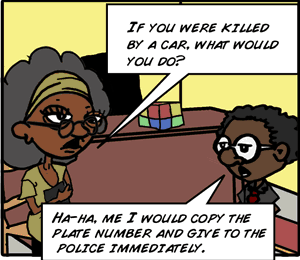The Cost of Being Human and Mature: Why Responsibility Defines Us.
Have you ever asked yourself what makes a person truly mature? Although the question may sound casual, it is deeply thought-provoking. Is maturity defined by age, intelligence, resourcefulness, education, or accolades? Or is it something more profound?
Life is a transformative journey that leads to maturity. The question that comes to mind is: How can one know they have achieved maturity? Real growth begins with acknowledging that being human comes with responsibility. This transformative journey of maturity is not about simply existing or occupying space. It's about making conscious and priceless contributions to the progress and sustainability of our world.
If we accept that responsibility defines humanity, logically speaking, personal accountability starts with self-awareness and self-consciousness. Self-consciousness involves knowing our responsibilities, emotional regulation, empathy, wisdom, and open-mindedness. These qualities empower us to be masters of our lives, which equally helps us to influence others positively. Taking responsibility for our problems is a prerequisite to maturity and a real-life learning process.
Maturity is not just about growing older; it's about growing wiser. It involves more than owning our actions — it requires empathy beyond our immediate surroundings. Understanding and appreciating the feelings of others and showing compassion and consideration are not only necessary ingredients for being a better human — they increase our level of maturity and foster a deeper connection with others.
Humility, being conscious of one's emotions and limitations, and recognising the same characteristics in others are essential tools for acknowledging the flaws in others as well. When we accept our mistakes and strive to make amends, we develop the capacity to manage stress and resolve conflicts healthily. Humility, in particular, allows us to understand how our actions affect others deeply. It also takes open-mindedness to see things from perspectives other than our own and to accommodate differing views without being swayed by the majority. Achieving this balance requires considerable humility and open-mindedness, key elements of maturity.
Awareness of how our actions impact others also calls for communication skills. One doesn't need to be a great orator to express one's thoughts and feelings consciously and respectfully. Communicating effectively- without causing harm—demonstrates emotional intelligence and maturity.
Ours is a world of conflicts, which leaves us with an important question: How can we navigate this complex and conflict-infectious world without rekindling more tension? Minimising disputes and promoting peace and understanding is a path to maturity. This can be achieved by practicing active listening, seeking common ground, and maintaining composure even in heated discussions. Unfortunately, this quality is often missing — even among leaders — leaving the world precarious. Navigating the complex terrain of human relationships without impulsive reactions and maintaining composure under challenging situations reveals our identity and maturity.
A life worth living is one in which we take responsibility for our choices and actions. A world where everyone sees themselves as victims is a world in decline. Actual growth begins when we take ownership of our lives. The day we do this is the day we truly grow up.
The future belongs to those willing to take risks and accept the responsibility of consciously creating the life they envision. This demands maturity — a maturity that comes from continuous learning. Maturity is a lifelong process that welcomes new experiences and learns from failure. New experiences include a willingness to learn from mistakes, accept setbacks, and strive for improvement. Maturity requires an awareness of how our actions affect ourselves and the world around us.
It is only when we look beyond our perspective that we understand and appreciate the perspectives of others.
Today, the world is enmeshed in conflicts and challenges due to a lack of personal and leadership maturity. This lack of maturity exposes us to avoidable hardship and suffering. Personal maturity allows us to navigate our lives with wisdom and empathy, while leadership maturity enables us to guide others with fairness and understanding. More than that, these dangers reveal our shortcomings as a species. Unless we change our mindset, grow up, and start accepting responsibility, we will stagnate socially, politically, economically, and personally.
Now is the time for us to become truly human. By 'truly human', I mean embracing our responsibilities, acknowledging our flaws, and striving for personal and collective growth. Now is the time to mature - by taking responsibility- before it's too late.
Video: https://youtu.be/V7DfnpSiC2I

